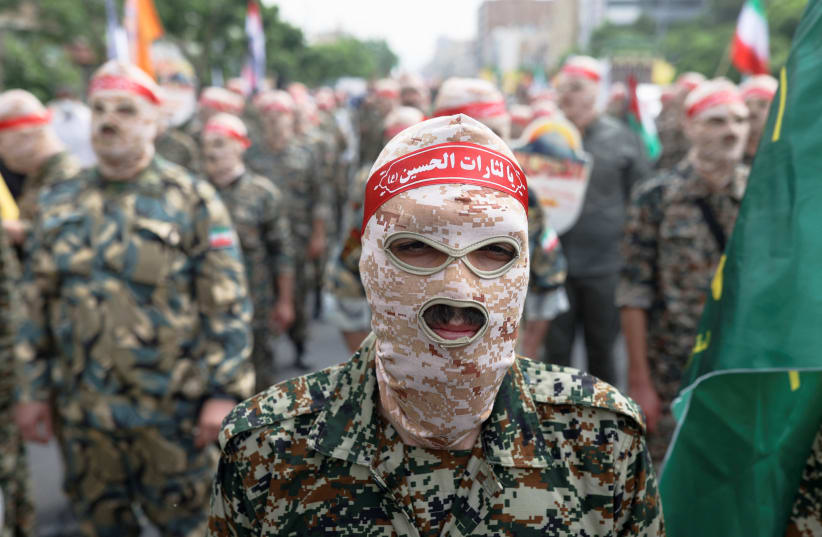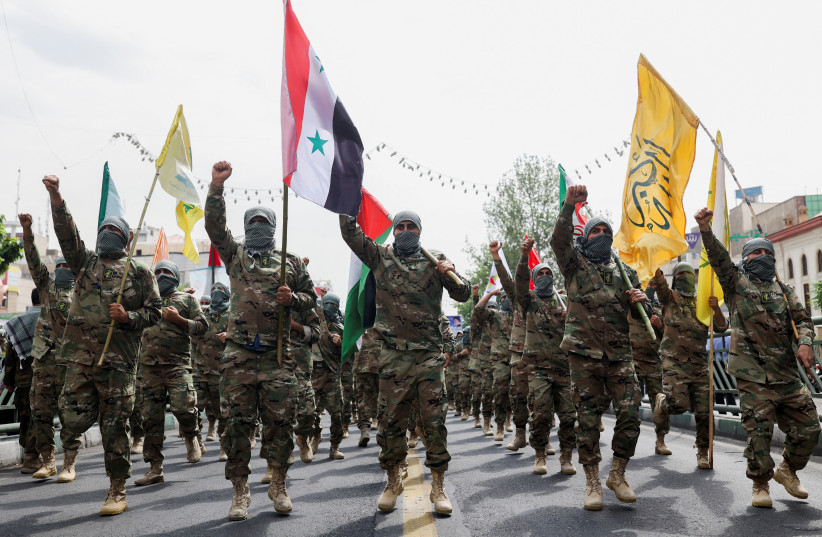An Iranian Air Force scientist from the Aerospace Unit was killed “during a mission” at the Semnan Air Defense Base in northern Iran, the semiofficial Fars News Agency reported Monday morning.
The scientist, identified as Mohammad Abdous, reportedly worked on the Islamic Republic’s satellite program, in addition to developing UAVs and ballistic missiles as part of his work in the air force. He died within 24 hours of another Iranian aerospace official.
Iran’s nuclear archives that were raided by the Mossad in 2018 revealed that the ayatollahs were planning two potential nuclear underground test sites in Semnan province.
These latest assassinations, or series of incidental deaths, depending on one’s perspective, may be the most significant to date, as they could directly setback Tehran’s ability to develop and deliver a nuclear weapon.
Last December and this past March, Iran attempted space satellite launches, which Israel, the US and others are concerned could advance the same skills needed for firing and delivering an intercontinental ballistic missile (ICBM) with a nuclear warhead.
IRGC in turmoil
This could potentially enable Iran to target not only Israel and Saudi Arabia with nuclear weapons – both are already within range of the ayatollahs’ existing conventional mid-range ballistic missiles– but also could allow them to hit the US and Western Europe.
In contrast, if Iran continues to lose aerospace scientists, and it may have lost two or three others in recent weeks besides the two in the last 24 hours, its ability to progress on long-range delivery systems for nuclear weapons could be drastically reduced.
Still, Iran cannot be ignored in this area. It successfully launched a satellite into space in 2020 after repeated failures had led the West to be dismissive of whether it would ever master satellite launches.
In the meantime, this would seem theoretical, as Iran has not publicly enriched its 60% uranium up to the final 90% weaponized level.
However, since this enrichment jump could be done quickly, in days or weeks, there has been a greater focus in intelligence circles on disrupting other skills that Iran would need to master to deliver a nuclear weapon.
Details on the circumstances leading to Abdous’s death were not reported.
Targeted Iranians
The news of Abdous’s death comes less than 24 hours after Ali Kamani, another member of the air force’s Aerospace Unit, died in a car accident in the city of Khomein.
Kamani was a “martyr who died in his mission to protect the homeland,” Iran’s Tasnim News Agency reported.
Earlier this month, Iranian aerospace scientist Ayoob Entezari died of poisoning. Most reports suggested he was more of a leading figure in Iran’s drone program than in its satellite program, but sometimes talented scientists participate in multiple programs at once. Some reports said he was a key figure in Iran’s missile program, which also relates to delivering potential nuclear weapons.
An explosion at Iran’s Parchin military complex near Tehran killed an engineer and injured another employee in late May. That attack also may have indirectly set back Iran’s nuclear program.
In contrast, other attacks on Iranians seemed directed at thwarting its Quds Force from planning global terrorist attacks.
Previously, an IRGC Quds Force officer was found dead under mysterious circumstances. Iranian officials told his family he fell to his death from the roof of his home in Karaj, possibly in an act of suicide due to “psychological problems caused by separation from his wife.”
However, the officer was suspected of leaking information that led to the assassination of Quds Force Col. Hassan Sayad Khodayari in May, Iran International reported. The two officers, both members of the secretive Unit 840 that is responsible for terrorist operations against Israeli targets abroad, were reportedly “close associates.”

